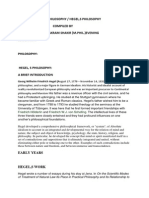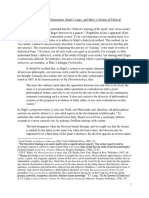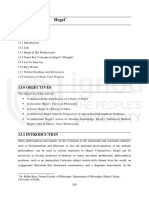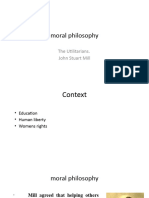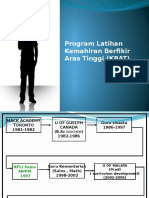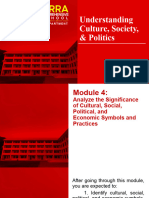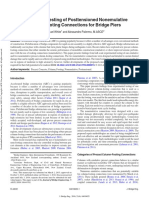0% found this document useful (0 votes)
65 views14 pages8 Lecture
1) The document discusses the life and philosophy of German philosopher Georg Wilhelm Friedrich Hegel.
2) It describes key events in Hegel's life, including his support of the French Revolution as a new age of freedom and his work for a pro-Napoleon newspaper after the closure of the University of Jena by Napoleon's forces.
3) The core of Hegel's philosophy is discussed, including his view that what is real is rational, and his concept of the dialectic process moving from thesis to antithesis to synthesis as a way humanity progresses toward greater rationality and freedom through history.
Uploaded by
Akbibi YazgeldiyevaCopyright
© © All Rights Reserved
We take content rights seriously. If you suspect this is your content, claim it here.
Available Formats
Download as PPTX, PDF, TXT or read online on Scribd
0% found this document useful (0 votes)
65 views14 pages8 Lecture
1) The document discusses the life and philosophy of German philosopher Georg Wilhelm Friedrich Hegel.
2) It describes key events in Hegel's life, including his support of the French Revolution as a new age of freedom and his work for a pro-Napoleon newspaper after the closure of the University of Jena by Napoleon's forces.
3) The core of Hegel's philosophy is discussed, including his view that what is real is rational, and his concept of the dialectic process moving from thesis to antithesis to synthesis as a way humanity progresses toward greater rationality and freedom through history.
Uploaded by
Akbibi YazgeldiyevaCopyright
© © All Rights Reserved
We take content rights seriously. If you suspect this is your content, claim it here.
Available Formats
Download as PPTX, PDF, TXT or read online on Scribd
/ 14







